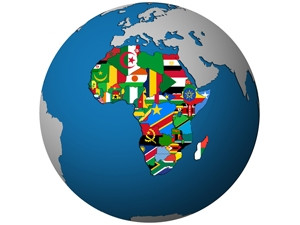
As the price of data-enabled devices across Africa decreases, consumers on the continent are increasingly migrating from feature phones to smartphones.
During a panel discussion at the AfricaCom conference, about providing devices that support Africa's demands, price was acknowledged as one of the principal drivers for African consumers. In addition, panellists deemed educating users about what is available to them and providing them with content that is locally relevant, and available in a multitude of languages, as being equally important.
According to Sagar Darbari, head of segments and devices at Airtel Africa, during a conversation with consumers in Ghana, it emerged the way that people interact with data is very different depending on their location and disparate needs. In some markets, smartphone adoption is starting to outpace the spread of feature phones, he added, noting pricing remains a critical factor.
Arif Chowdhury, VP or TECNO Group, stressed the old adage "think globally but act locally" could not be more pertinent when businesses are looking to tap into African markets. He outlined that education is important because many users have data-enabled phones but fail to utilise this data capability because they do not realise the benefits of having this level of access and don't know how to properly use their devices.
"The single biggest challenge that we as operators have is actually getting the public to purchase data-enabled phones. We need to encourage them to do so by enhancing offerings and bringing prices down," Darbari stated, agreeing that actually getting them to consume data proves a major hurdle.
For Rick Fant, VP for planning and ecosystems at Mozilla, there has been an emergence of low-cost smart handsets but the real focus should be on bringing the next two billion data users online. "It doesn't matter what brand of device we are making available to these new markets. We need to create a larger market. Bringing users online is critical," he said. While many of these users want to access popular services likes WhatsApp and Facebook, operators and device manufacturers also need to push local content and content that is relevant to users on the ground.
Raul Martinez, commercial director for Africa at Millicom, agreed. Reducing the cost of handsets is essential but it is also exceptionally important to offer these individuals content in their own languages. "Cost is important but it is not only cost that matters." He mentioned an example of a partnership between Millicom and Facebook to give the social network a zero-rating, in addition to offering Facebook to users in Swahili.
"Feature phones are still needed and they act as a means to offer users their first Internet user experience but in terms of consumer needs, we should be targeting local content in local languages and where we can best deliver that experience is using a smartphone," Martinez stated, continuing that this involves not just going for low price but also good quality.
"Getting people online and giving them access to the benefits of the Web needs to be pushed sooner. Zero-ratings for Web sites that offer governmental and health information is a possible way of allowing people to use their data and smartphones for something that is important to them and will benefit them moving forward," said Fant.
"Data costs are decreasing. But the first big investment that customers need to make is still in a device," noted Martinez. "And operators need to make this more affordable by offering packages that are affordable and suit their unique needs."
Keeping the user and their needs at the centre is the most important thing, concluded Fant. "Africa and the other high-growth markets will influence what the Web looks like in the future. We are yet to see what the mass high-growth market is going to look like and how the Internet in these regions will take shape. The users will tell us and show us what really can be done and that is the most exciting part."
Share